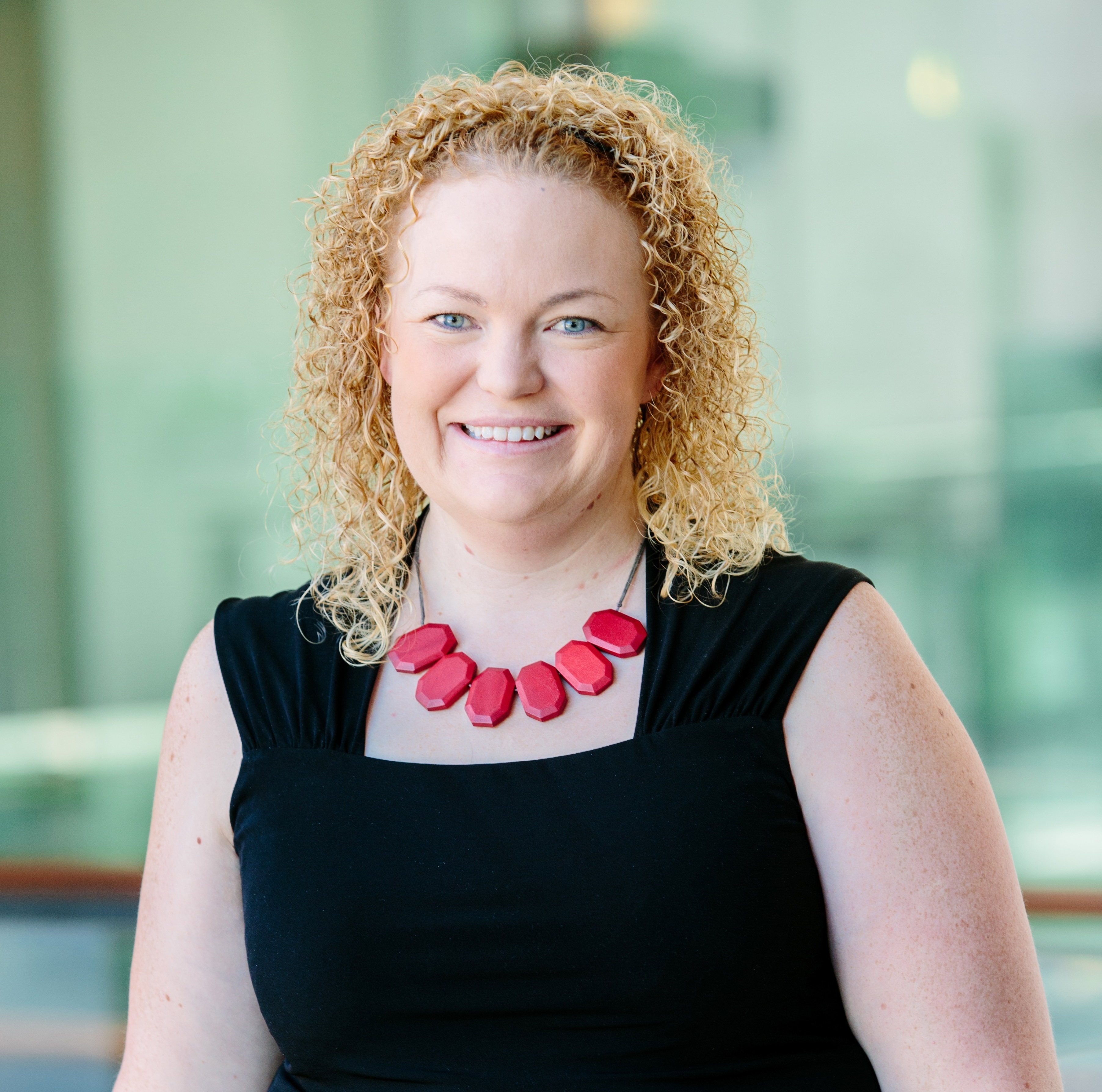Dr Emma Bartle
To address the 2019 theme "creativity' for UQ Teaching and Learning Week we highlighted some of the innovative teachers who enhance student learning in UQ's Faculty of Health and Behavioural Sciences.
Q&A with Dr Emma Bartle

1. What kind of innovative teaching and learning practices do you incorporate?
I try to engage students as much as possible during my lectures and have them doing active learning. Many of the concepts I teach can be quite challenging to students – particularly in the Year 1 Dental Science course – and a 2D image and explanation on a slide isn’t the most helpful way to support a student to understand. While I always have a small number of slides I have displayed in the background, during the lectures I mostly use the visualiser to draw things out in real time, playdough and beads to model different cellular processes, even using random household objects such as a mop and sleeping bag along with student volunteers to recreate cellular processes on the lecture stage so that students can see in 3D what is happening.
In the Research Methods course that I teach I try and turn ‘dry’ topics into an engaging activity that requires students to get up out of their seats and be active, for example assigning them each as a different type of literature evidence and getting them to order themselves from most to least credible and defend themselves (in character) to their peers. I also always try and connect the concepts I’m teaching to the real world and explicitly link how a science/research concept that may seem theoretical and abstract to them at the time is actually extremely relevant to their everyday practice as a dentist once they graduate.
2. How do you hope to influence the student experience at UQ?
My own learning experience as an undergraduate student was completing courses where we were overloaded with information and resources, and attending lectures where the lecturer just talked at us for an hour. It felt like there was no focus on whether we were understanding the content, or learning in general. As a result, my approach as a teacher has always been to try and engage the students actively in their own learning as much as possible, whether it’s embedding hands-on activities into a lecture or setting the students mini-challenges to complete in their own time to check their understanding of content. By teaching rather than just lecturing the students, I hope that I can contribute to a positive learning experience for them where they enjoy their studies.
I also firmly believe that the student experience isn’t just what happens in the classroom. This is even more relevant for my particular context, in the School of Dentistry, where most of our students are not Brisbane-based and so have to deal with the challenges of transition to a new city without family and friend support, in addition to an academically challenging curriculum. I have a lot of respect for the students and take the time to learn all of their names and a bit about their background. I’ve also actively partnered with students over the years to develop and implement a number of initiatives, from a peer mentoring program for first year students to a career mentoring program for final year students, that provides them with support for other important aspects of their student experience. By doing these things in addition to teaching, I hope to contribute to a positive overall student experience for them where they feel that the staff care and see them as more than ‘just a face’ sitting in a lecture theatre.
3. What do you enjoy about teaching students?
Their enthusiasm can be infectious, particularly in the first year courses I teach. I enjoy interacting with the students, and find it really rewarding when you see the students’ self-confidence grow over a semester, particularly when teaching challenging concepts and you can physically see their ‘lightbulb moment’ when they suddenly understand it. I also think that the current generation of students don’t always just accept what you tell them and can challenge information in their questions, which is good as it makes me stay on my toes and constantly refresh my own understanding of concepts so the content never feels like it is stale.
4. What are your career highlights so far?
I’ve been really fortunate to get a lot of travel opportunities in my career, which has enabled me to explore different parts of the world as well as meet a great network of colleagues and peers. Travel highlights that immediately come to mind are getting the opportunity to go and work in the labs at the British Museum, collect 15th Century ceramic samples from old abandoned kiln sites in Japan, and spend time travelling through Canada (a country I’d wanted to visit since I was a kid!).
